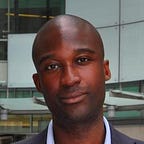A Week in Nigeria: 24 November
Highlights from Reuters coverage of Nigeria over the last seven days
3 min readNov 24, 2018
In this week’s round-up: Military deaths are used as a political weapon, Buhari and Atiku unveil their election manifestos and the central bank governor hints that an agreement with MTN is close.
- Militants killed around 100 Nigerian soldiers in an attack on an army base, security sources said, blaming Boko Haram offshoot Islamic State West Africa. The insurgents attacked the base in the village of Metele in northeastern Borno state, the epicentre of a revolt by Boko Haram and its Islamic State splinter group. The toll is among the highest since President Muhammadu Buhari came to power in 2015 and it could raise pressure on him ahead of an election in February, not least because he has claimed victory over the nine-year insurgency.
- Islamic State later claimed responsibility for the attack which it said was among five it had carried out over the last week that it claimed resulted in 118 casualties.
- The deaths were widely reported in the Nigerian media and were seized upon by critics of Buhari whose administration has been largely silent about the fighting in the northeast as, in battle after battle, soldiers have been killed. On Thursday Buhari’s political opponents disclosed that 44 soldiers had been killed in the attack on Metele and adjourned parliament out of respect. Political and security analysts said the move, which has not been carried out after other military deaths of the last few months, was calculated to undermine the security credentials of the president as he seeks a second term in three months’ time. The opposition is “playing politics with conflict,” said one analyst. Attacks by Boko Haram in the run-up to the last election, in 2015, weakened then-president Goodluck Jonathan and helped Buhari to defeat him at the polls. The debate over the deaths and the way it has been handled by the government and military was heated on social media.
- Election campaigning official began on 18 November. The two main contenders, President Buhari and former vice president Atiku Abubakar, unveiled their manifestos.
- Buhari’s plan focuses on the expansion of his administration’s social welfare programme, a continuation of his anti-corruption agenda and improvements in education.
- Atiku’s 186-page document mainly lays out his economic plans which include a goal to double the size of the economy to $900 billion by 2025 and vows to boost oil sector investment and cut costly fuel subsidies.
- I laid out the contrasting approaches of the two main candidates in a Reuters TV dispatch.
- The central bank kept its main interest rate at 14 percent. The decision by the monetary policy committee wasn’t a surprise since the rate has been held at the record high level of 14 percent since July 2016. Analysts polled by Reuters have predicted that the bank will hold interest rates at 14 percent through 2019.
- Of greater interest to most onlookers than the interest rate decision were comments made by the central bank governor about South African telecoms giant MTN in his post-rate setting press conference. Godwin Emefiele said the central bank was on the verge of an agreement over an $8.1 billion dispute with MTN. However, he declined to provide further details. In August, the central bank ordered MTN and its banks to bring $8.134 billion back into Nigeria, sending the company’s shares plummeting. The regulator alleged the firm had sent the funds abroad in breach of foreign exchange regulations. Shares in MTN Group surged 4 percent following Emefiele’s comments.
- The United Nations agency for HIV and AIDS placed its country director for Nigeria on administrative leave following allegations of sexual harassment. The Nigeria case is one of three under investigation at UNAIDS, said a spokeswoman. The cases have been referred to the World Health Organization’s Office of Internal Oversight, which looks into such matters for the smaller agency.
- French outdoor advertising company JCDecaux has spotted a business opportunity in Lagos gridlock. The company said it plans to provide real-time traffic information in Nigeria’s commercial capital. It also said it would install solar-powered bus shelters and automatic public toilets, to target an outdoor advertising market worth around $130 million.
